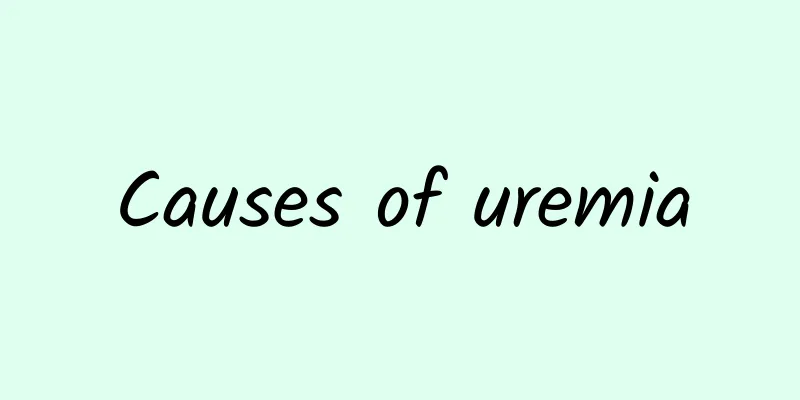Causes of uremia

|
Uremia is a very terrible disease. Like cancer, uremia is the biggest killer of human health. There are only two treatments for uremia: long-term dialysis and kidney transplantation. Both treatments require a lot of money, which is a huge financial burden for the patient's family. Kidney transplantation also requires a suitable kidney source. Some patients cannot find a kidney source and ask their family members to donate a kidney. We can often see on TV touching stories of family members of patients with uremia donating kidneys to the patients. There was a six-year-old child who donated a kidney to save his mother. Many people were impressed by the child's courage. Uremia is so terrible, what are the causes of uremia? Uremia is a general term for a series of symptoms that occur in the late stage of renal failure. The symptoms of chronic renal failure are mainly poisoning caused by the accumulation of harmful substances and anemia and bone disease caused by the decrease of renal hormones. The most common symptoms in the early stages are gastrointestinal symptoms such as nausea, vomiting, and loss of appetite. After entering the late stage of uremia, all systemic diseases will be affected, leading to serious conditions such as heart failure, mental disorder, coma, etc., which are life-threatening. In the past, uremia was considered an incurable disease. However, since the 2000s, dialysis and kidney transplantation have been developed, which have significantly extended the life expectancy of uremia patients. During the uremia stage, in addition to the further aggravation of the above-mentioned water, electrolyte, acid-base imbalance, anemia, bleeding tendency, hypertension, etc., clinical manifestations caused by dysfunction of various organ systems and material metabolism disorders may also appear. Patients often have symptoms such as dizziness, headache, fatigue, and decreased comprehension and memory. As the disease worsens, irritability, muscle tremors, and convulsions may occur; finally, it may develop into apathy, drowsiness, and coma. In addition to the above symptoms, patients with uremia will also have poor appetite, and when the condition is serious, they may also experience nausea, vomiting, diarrhea, etc. Kidney damage can occur at any age. Everyone should pay attention to this in daily life and take medicine under the guidance of a doctor, including cold medicines and anti-inflammatory drugs. Medicines can cause the greatest damage to the kidneys. |
Recommend
How to care for newborns, common sense of newborn care
We all know that when a baby is just born, his co...
What to drink when your stomach is upset
Gastric disease is now a common disease and is kn...
What are the symptoms of intestinal folding?
Many people may not pay much attention to intesti...
Can I still increase my milk production after taking milk-suppressing medicine?
Wet milk dryness is a common phenomenon in life. G...
What diseases are people with impatient tempers prone to?
There are many kinds of human personalities. Some...
Steps of dental brace treatment
Root canal treatment, also known as endodontic tr...
The taboos of decocting Chinese medicine are fatal
Western medicine only treats the symptoms but not...
What can a cold blood test reveal?
When you have a cold, inflammation will occur. At...
Causes of Prostate Enlargement
Speaking of the prostate, I believe most of us me...
What should I do if my child cries loudly at night?
It is very normal for children to cry, because chi...
Can You Jingan make warts disappear?
You Jingan (recombinant human interferon supposit...
How to deal with skin care product allergies
For women, allergies may occur if they use cosmet...
Can I do scraping on my abdomen?
Due to the high work pressure, many modern people...
What are the symptoms of shoulder rheumatism
All parts of the human body are susceptible to di...
What to do if your tonsils are inflamed and you have a fever? Here are three tips to help you
Acute tonsillitis is one of the most common disea...









